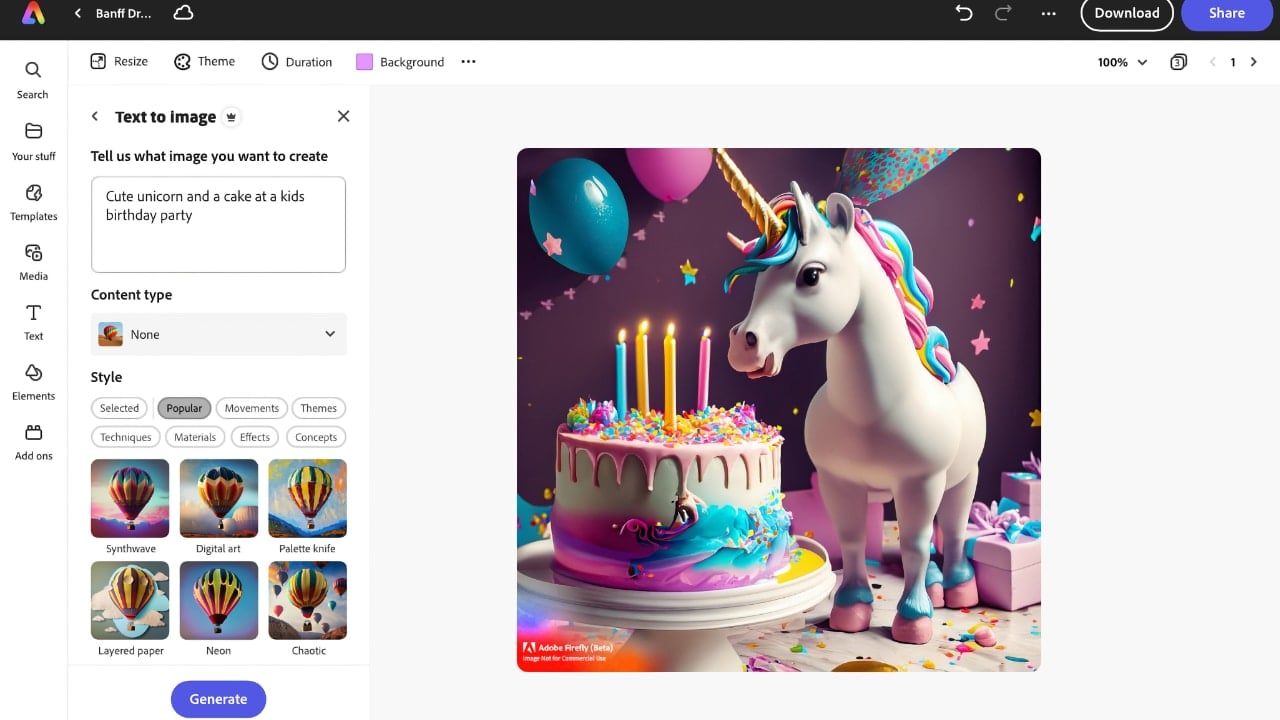
Adobe and Google are partnering to bring Firefly to Bard, Google’s experimental conversational AI service, with the ability to continue the creative journey further in Adobe Express.
After a debut month which has seen Adobe Firefly, the company’s generative AI, deliver more than 70 million images while still in beta, Adobe has pulled off the notable coup of an integration with Google’s Bard AI chatbot that will see it become the premier generative AI partner for Bard’s text-to-image capabilities.
The upshot is that users at all skill levels will be able to describe their vision to Bard, create Firefly generated images directly in Bard, and then modify and use them to create designs via Adobe Express. And Adobe crucially also plans to use the Content Authenticity Initiative’s (CAI) open-source Content Credentials technology to bring transparency to images generated through this integration.
The CAI’s Content Credentials are a free, open-source tool that serve as a digital “nutrition label.” Content Credentials can show information such as name, date, the tools used to create an image and any edits made to that image. They remain associated with content wherever it is used, published or stored, enabling proper attribution and helping consumers make informed decisions about digital content. And they should help the company, and now Google as well, sidestep some of the knotty plagiarism lawsuits that are starting to wend their way through courts and legislatures around the world.
Firefly’s first model is, of course, trained on Adobe Stock images, openly licensed content and public domain content where copyright has expired. With CAI members now including AFP, the Associated Press, the BBC, Getty Images, Leica, Microsoft, Nikon, Reuters, The Wall Street Journal, and more, there is also every chance that future models will be trained on even larger libraries.
“At this critical moment in history, as generative AI becomes more powerful and prevalent than ever, people need a way to tell what’s behind the content they’re consuming,” said Dana Rao, General Counsel and Chief Trust Officer, Adobe. “Content Credentials will enable creators to tell their stories authentically, while providing easy-to-use tools to verify how a piece of content was created and modified.”
CAI, which was founded by Adobe, has also passed a significant milestone, surpassing 1000 members with new additions to its global coalition including Universal Music Group (UMG), Stability AI and Spawning.ai. They join a broad mix of tech and media companies, camera manufacturers, creative professionals, researchers, NGOs and many others. With the emergence of generative AI, Content Credentials serve an essential role in ensuring people know whether a piece of content was created by a human, AI-generated, or AI-edited.
“This milestone demonstrates the importance of restoring trust online and incredible momentum behind the Content Authenticity Initiative solution across every vertical and industry,” said Rao.
Google is, of course, very much on the back-foot when it comes to generative AI, and it will be interesting to see how the current Google I/O event (of which this Adobe announcement is a part) can balance the tasks of a) catching up and b) easing the growing jitters about the technology.
Either way, it’s likely that next month’s figure will quickly surpass the 70 million generated images of the first month.
Tags: AI


Comments